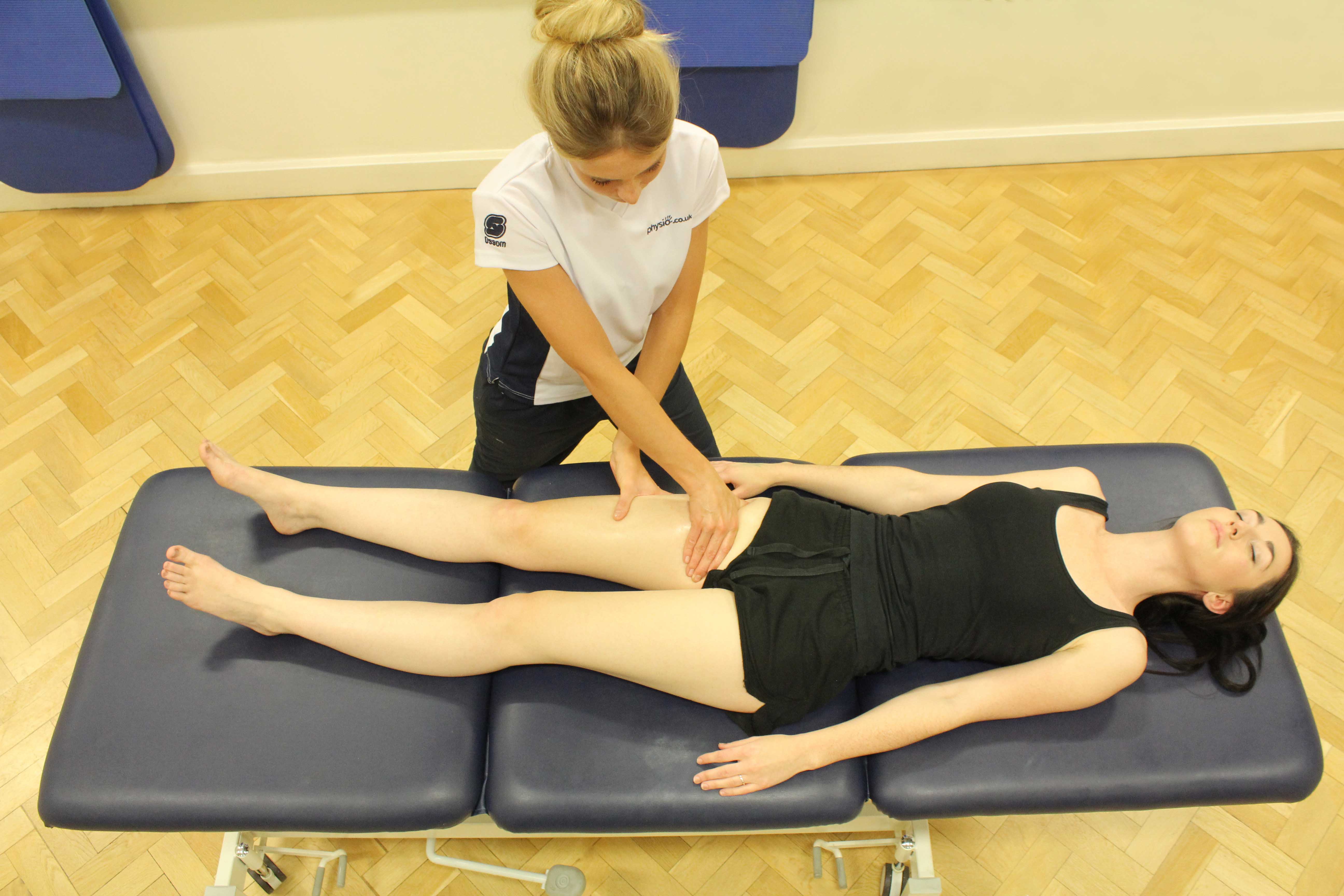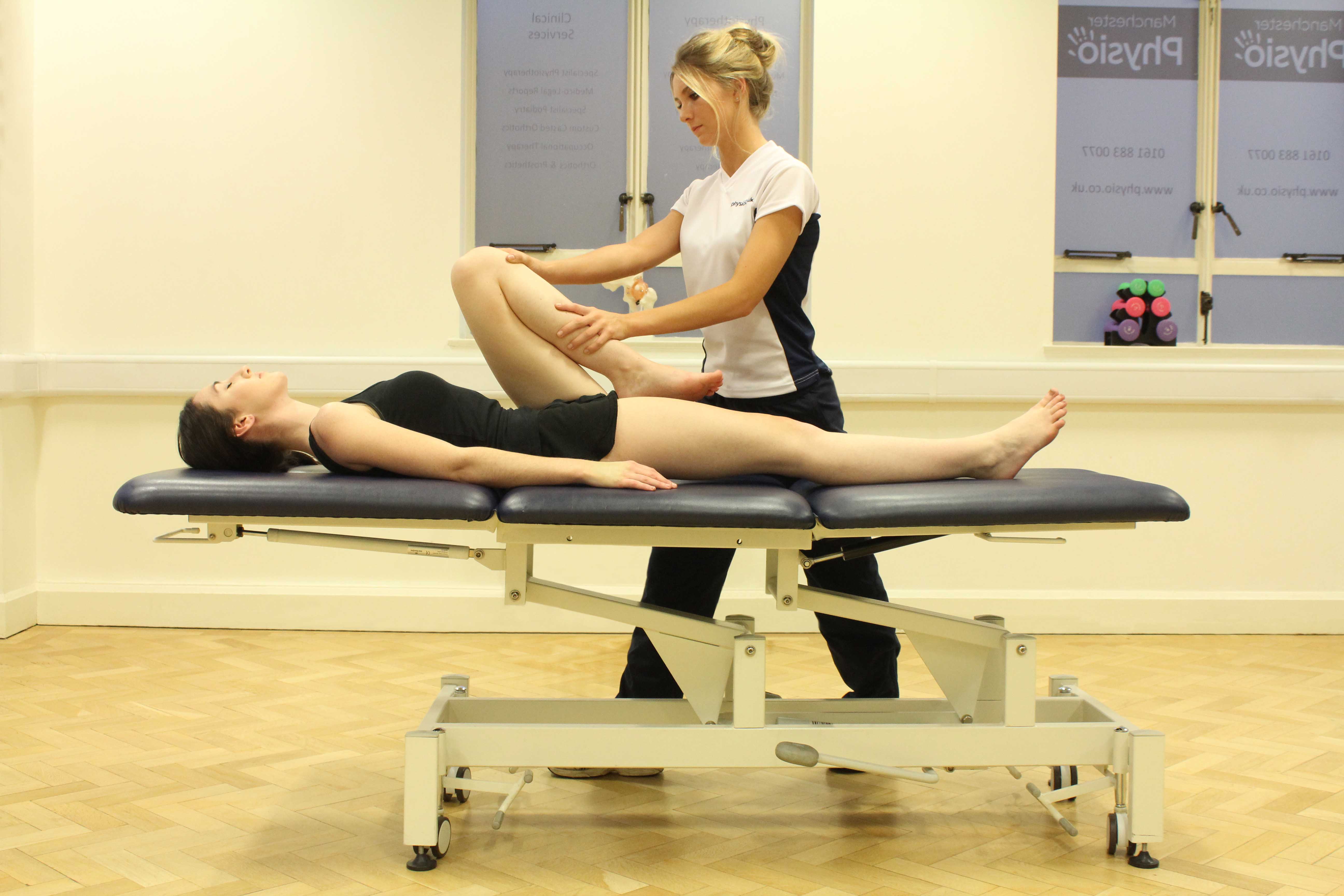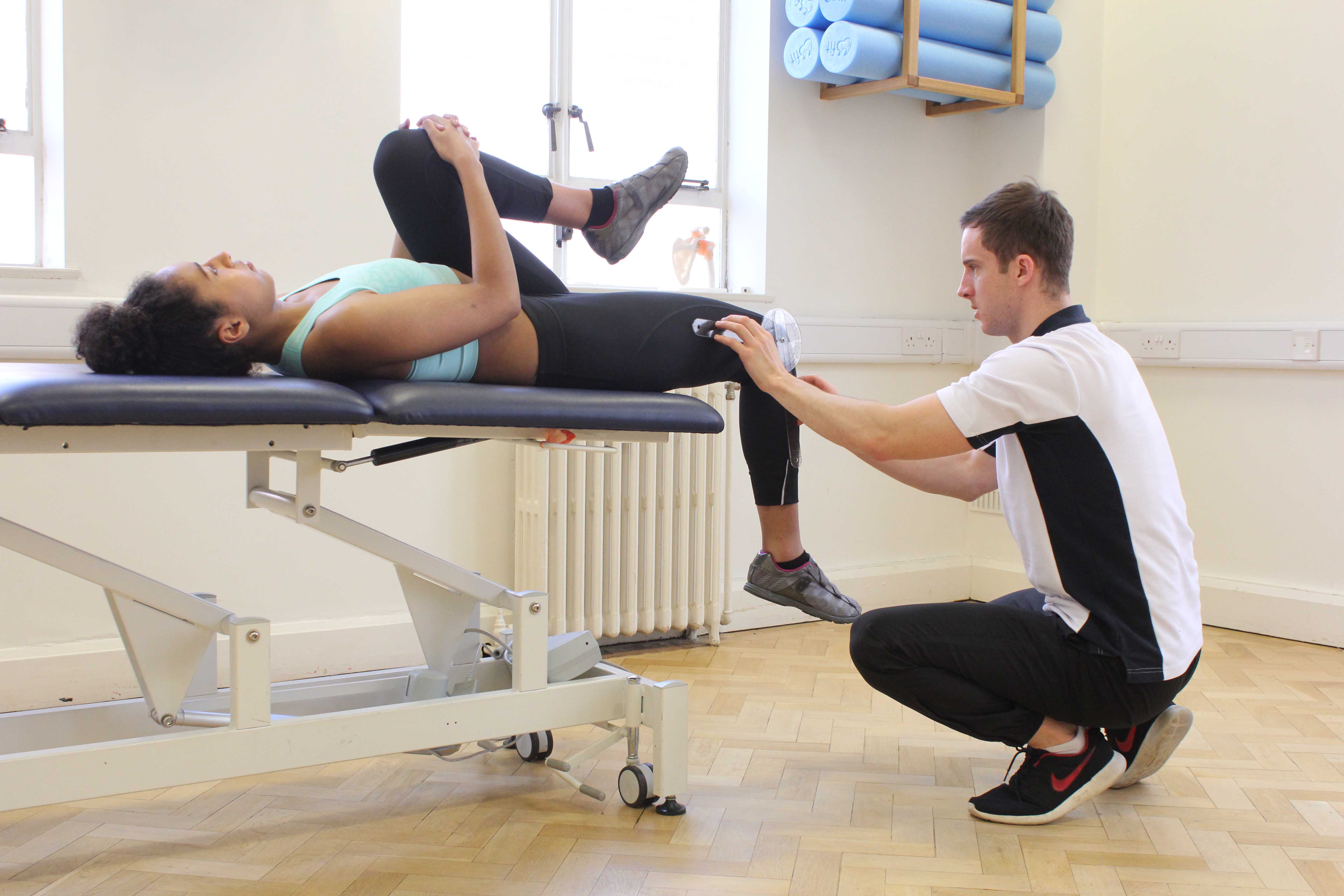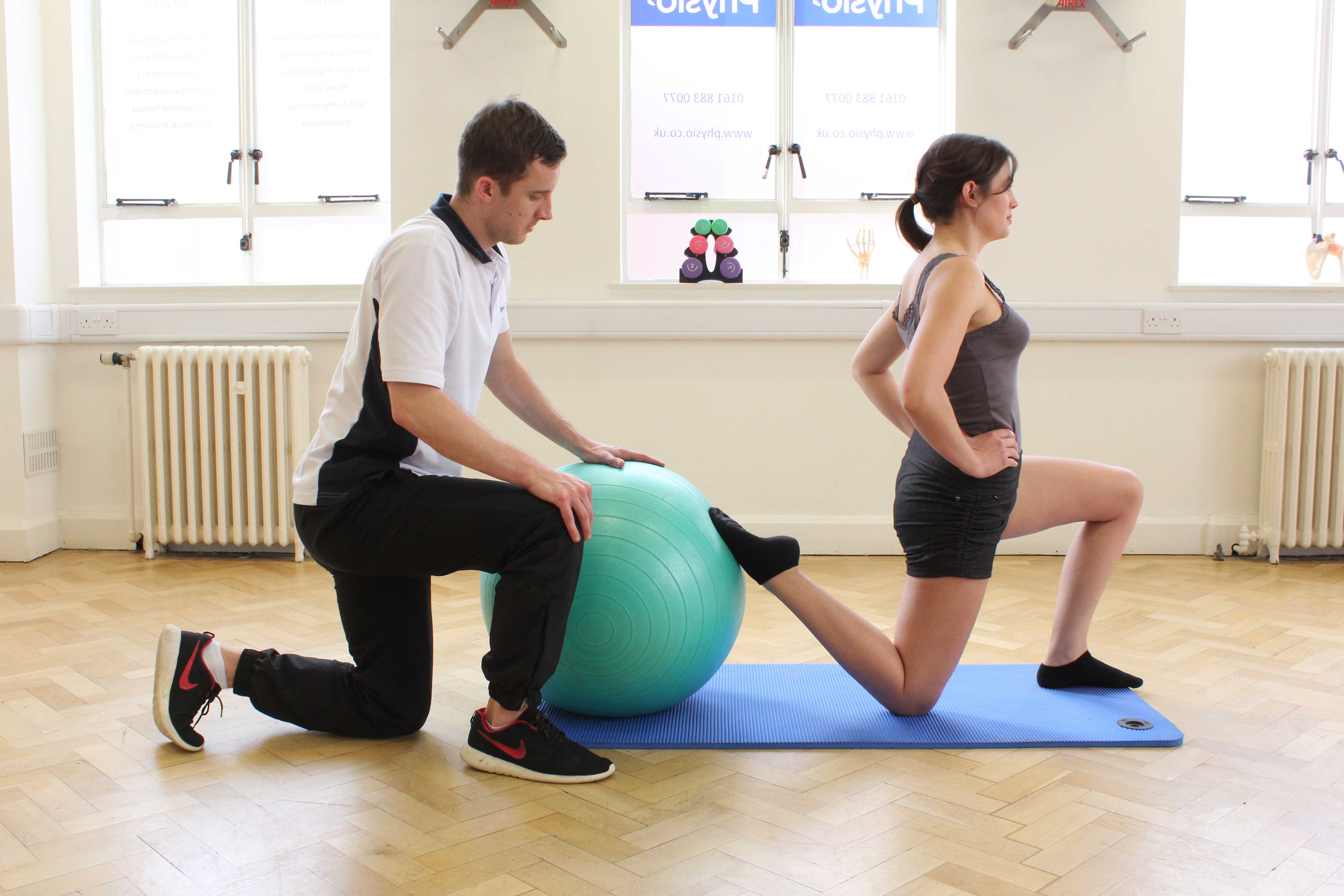What is a sportsman’s hernia?
A sportsman’s hernia (or posterior inguinal wall weakness) is weakness in the deep layer of the abdominal muscles just above the genitals. Physiotherapy is an important treatment for sportsman’s hernia.
 Above: Therapist performing soft tissue massage to the groin muscles
Above: Therapist performing soft tissue massage to the groin musclesHow does a sportsman’s hernia happen?
A sportsman’s hernia is caused by weakness in the deep layers of the lower abdominal wall and lower abdominal muscles. This weakness allows contents of the abdomen to press outwards, compressing structures in the groin. This is commonly seen in kicking sports.
What are the symptoms of a sportsman’s hernia?
Sportsman’s hernia presents as groin pain which gradually worsens over a period of months. The pain is often made worse by activity, especially kicking, and is difficult to locate. It is not usually painful at rest; however, the pain returns immediately if you return to normal activity. Symptoms may include:
 Above: Passive stretch of the muscles and connective tissues of the hip and groin by specialist therapist
Above: Passive stretch of the muscles and connective tissues of the hip and groin by specialist therapistWhat should I do if I have a sportsman’s hernia?
If you have or suspect you have a posterior inguinal wall weakness, you should arrange an appointment with your GP as soon as possible.
What shouldn’t I do if I have a sportsman’s hernia?
If you have or suspect you have a sportsman’s hernia you should not ignore the problem and continue to participate in sports.
Could there be any long-term effects from a sportsman’s hernia?
Sportsman’s hernia is a condition that does not get better by itself. The weakness in the abdominal wall must be surgically repaired. Following the surgical repair of a sportsman’s hernia, recovery usually takes place in a few months and there are usually no long-term effects.
 Above: Passive stretch of the muscles and connective tissues of the hip and pelvis by specialist therapist
Above: Passive stretch of the muscles and connective tissues of the hip and pelvis by specialist therapistPhysiotherapy treatment for a sportsman’s hernia.
Physiotherapy treatment is important following the surgical repair of a sportsman’s hernia. Your physiotherapist will be able to provide you with a rehabilitation plan to strengthen your lower abdominal and pelvic floor muscles. This can accelerate your return to participation in sports and prevent further problems.
Physiotherapy could include:
- Electrotherapy
- Hydrotherapy
- Manipulation / Mobilisation
- Core Stability Exercises
- Soft Tissue Treatment
 Above: Hip extension flexibility measured with goniometer during assessment by physiotherapist
Above: Hip extension flexibility measured with goniometer during assessment by physiotherapistPlease call Physio.co.uk on 0330 088 7800 to arrange an assessment or book online today.

 0330 088 7800
0330 088 7800

































